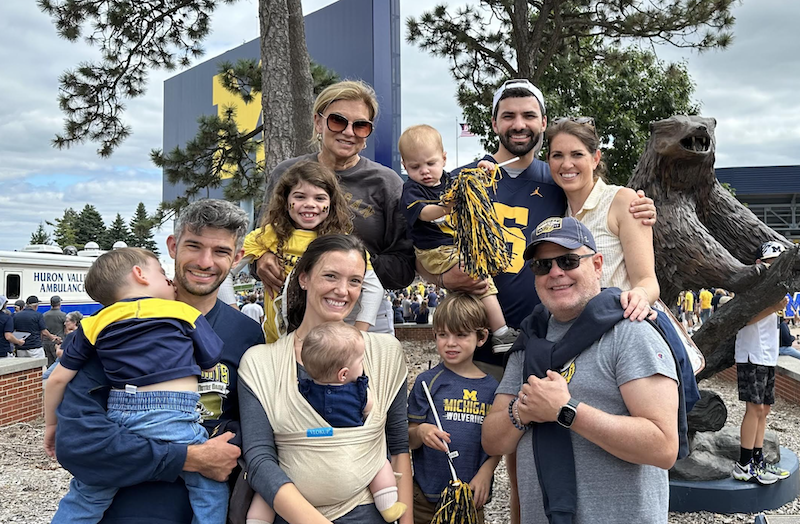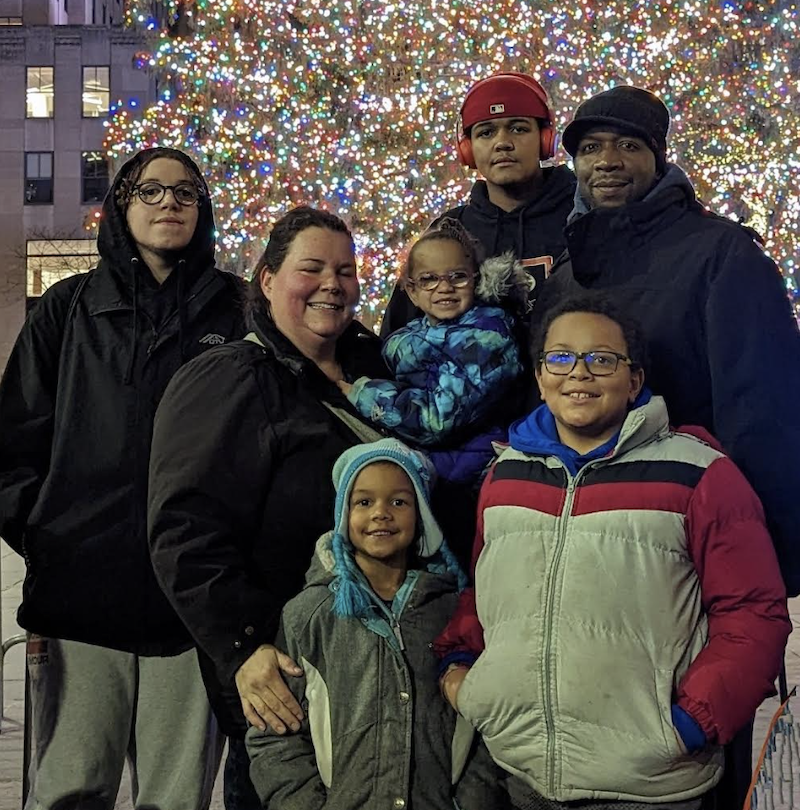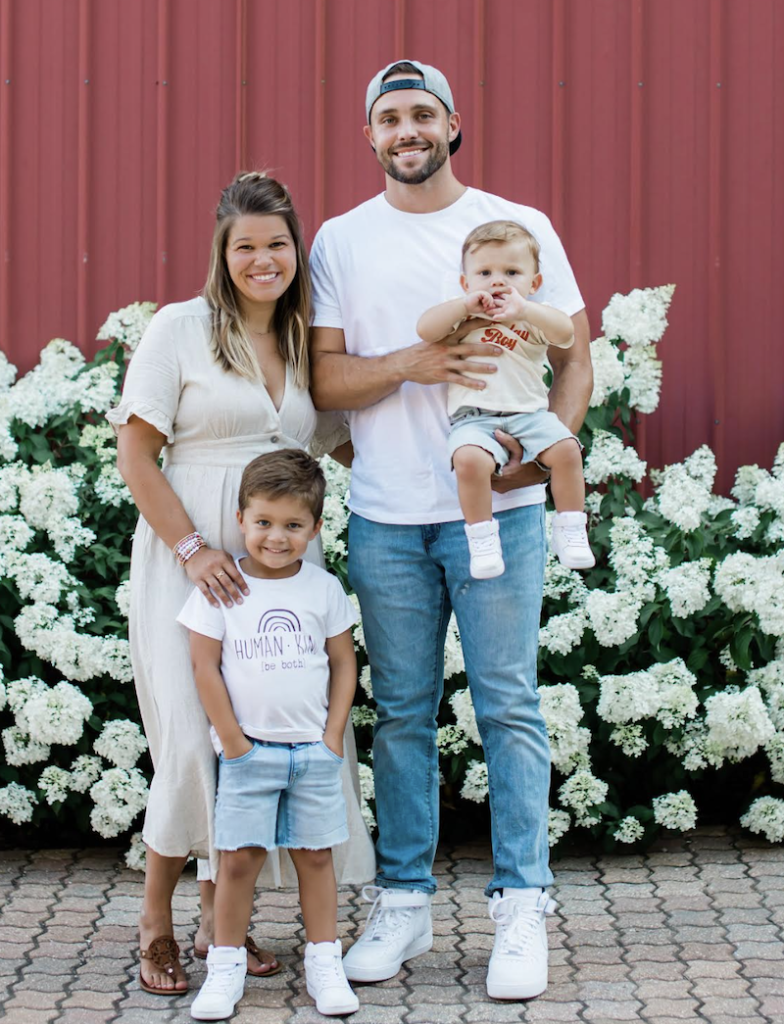This week for the These Dads Are Doing It Right series I am teaming up with Medela and the March of Dimes. I hosted a panel where I interviewed three dads about how men can create family-friendly workplaces. The three men that I interviewed are Jeff Castillo, Malcolm Newsome and David Holstein. They do this by supporting parenting and work-life integration. After the panel I had them answers some other questions to go along with the panel. If there are any other dads that you think we should check out leave their name and info in the comment section below.
Dads Creating Family-Friendly Workplaces: Supporting Parenting and Work-Life Integration

Jeff Castillo – Executive Vice President of the Americas for Medela LLC
Art Eddy: How does your company plan to address potential challenges that may arise from the blend of remote and in-office work. How do you ensure that employees continue to experience a fair distribution of workload and maintain their work-life equilibrium?
Jeff Castillo: At Medela, we’re currently a hybrid workforce right now. We have been able to help employees navigate through the remote-to-hybrid transition with leadership support and encouraging teams to stay connected. We do this with a mix of virtual communications. There is in-person touch points, and providing resources that are accessible to all regardless of location
Art Eddy: Are there any existing policies or initiatives in place that specifically address the challenges faced by working fathers? If so, could you describe them?
Jeff Castillo: I’m glad to see the increase in conversations like these elevating the role of fathers in the workplace. In addition, the efforts to encourage them to speak up for what they need, and use the resources offered to dads. At Medela, when we tackled paid leave for our US employees a few years ago. We wanted to create an equitable policy that was accessible and realistic for families. Today our 16-week fully paid leave is accessible to birthing and non-birthing parents alike. It is providing families the ability to use it as works best for them.
Employees can use it all at once or break it up and use it as makes sense for them. It can be any time through baby’s first year, and our employees have shared how much they appreciate it. We know it’s important that dads have time with their new babies. It supports fathers in bonding, and establishing a true co-parenting routine with their partners. Additionally, studies show that support from dads can lead to longer breastfeeding, and their partners are more likely to have a successful return-to-work experience.
Art Eddy: Can you provide examples of collaborative initiatives that involve employees in shaping the company’s post-pandemic approach to work-life balance, fostering a sense of ownership and inclusivity in the process?
Jeff Castillo: Our parental leave policy is one example of this. Our current paid parental leave policy was spearheaded by two mom employees who believed strongly about being an organization that supports families. Following the pandemic, employee feedback was gathered through surveys and ongoing touch points to help us land with our current hybrid model. It also allowed us to offer unique things for teams where further customization was possible, like shifts that start or end around the school schedule for our production and service teams. We are very committed to meeting the needs of our workforce, and that must include parents.

Malcolm Newsome – Children’s Book Author And Cybersecurity Expert
Art Eddy: You and your family experienced losing a child. What was it like dealing with grief while also trying to be present for your kids at home? How about at work? Anything in particular you’d like to share with our listeners who may have experienced, or are experiencing, a similar situation?
Malcolm Newsome: One of the biggest challenges I faced was not knowing how to talk to my young children about the death of their unborn sibling. It’s a hard thing to discuss at any time. But, in the midst of my own processing, it was exponentially harder. I do recall some days where it was also difficult to summon the energy that little ones need. For me, work was a bit of an escape. But, it also turned out to be a place of healing for me because the head of our HR department connected me with another male who’d also experienced miscarriage. He turned out to be a great support through it all. My biggest encouragement to anyone listening is to please make a commitment to yourself that you will not allow yourself to suffer in silence.
Art Eddy: Have you ever had to make career-related decisions with your family’s well-being in mind? How did you approach these decisions?
Malcolm Newsome: I have. I’ve needed to weigh the pros and cons of promotions as well as career/industry changes several times. Each time, I had to consider my family’s as well my own well-being. One indispensable thing that’s helped us approach these decisions is having a strong sense of purpose and mission. Being purpose-driven and mission-minded has helped us obtain the clarity I needed in order to determine when to say yes or no to opportunities—without money or the appearance of prestige taking center stage. And I’m happy to say that this pattern of decision-making has led me to one of the most joyful and fulfilling careers in cybersecurity with Jemurai, the company I now work for, and the fulfillment of a longtime dream–being a published children’s author.

David Holstein – Chief Revenue Officer At NEOCALL
Art Eddy: You and your family experienced losing a child. What was it like dealing with grief while also trying to be present for your kids at home? How about at work? Anything in particular you’d like to share with our listeners who may have experienced, or are experiencing, a similar situation?
David Holstein: It was incredibly difficult. Our first son, Jack, was so young. I think maybe he was 2 and he was so incredible and emotionally aware as a young kid. Even with the best poker face on, he knew. He was extra snuggly, cuddly, and all of the things I needed in that moment. He continues to be an emotional thermometer for me today. But even so – it was incredibly difficult. I went back to work quickly – struggling between how I was feeling but also with this sense of “duty” that the father works and pushes forward even when others cannot. My advice to anyone (mothers or fathers) dealing with grief is to allow yourself the space to feel it when you need to.
It was an emotional rollercoaster for me. Some days, it was like nothing happened and I was going through the motions… and I felt so so guilty for that. Other days, I couldn’t blink without getting overwhelmed. I found that sharing my experience with trusted colleagues allowed me to feel OK not being OK. That was an important step – it sounds small but you think “What if I break down on this call right now – how awkward would that be” but if I needed it, I let myself have it.
Art Eddy: Have you observed any instances where fathers may feel overlooked or excluded from discussions around parental leave or flexible work arrangements? How does your company work to mitigate this sentiment?
David Holstein: Absolutely, but I don’t think this is a conscious decision. I believe that the idea of the father in the household is a social construct that has yet to be broken in the workplace. And, unfortunately, it takes significant loss and extreme circumstance to challenge that norm. When we experienced the loss of our second son, we received a lot of gifts, meals, etc. But, whenever I would speak to people the first question would be How is Kali (my wife) doing? Don’t get me wrong, she needed and deserved an absolute prayer army for what she was going through. I was legitimately happy she was getting it. But, very rarely would anyone ask about me and I felt like I needed to be this ROCK that I wasn’t sure how to be anymore.
When I started at Neocol, my company was small less than 20 people. So there were many benefits that honestly just weren’t thought about at the time. But, as we continued to grow and listen to the needs / desire of our employees things began to change. Not only from our policies and procedures – but also as people in general. We started to understand each other more – listen to each other – care for each other in a different way. We’ve come a long way.
Art Eddy: Are there ongoing efforts to challenge traditional stereotypes. One of those are that fathers are less interested in work-life balance or family involvement compared to mothers?
David Holstein: Less interested is an interesting way to put it. I am not so sure that it is “less interested” as much as it is “I don’t know how to do anything other than what I was raised to do work to provide.” I think that is the challenge. For me it has always been a struggle to tip toe the line of what I feel I need to do (work hard, provide, be the rock) vs. what I want to do (spend a lot more time with family, be more present, etc.). Overall wellness is something we care deeply about at Neocol. There are different committees and policies like mandatory PTO per quarter (one week). But, I don’t think policies are truly enough. It needs to extend beyond the policy and require leaders to encourage and check in our their people.

